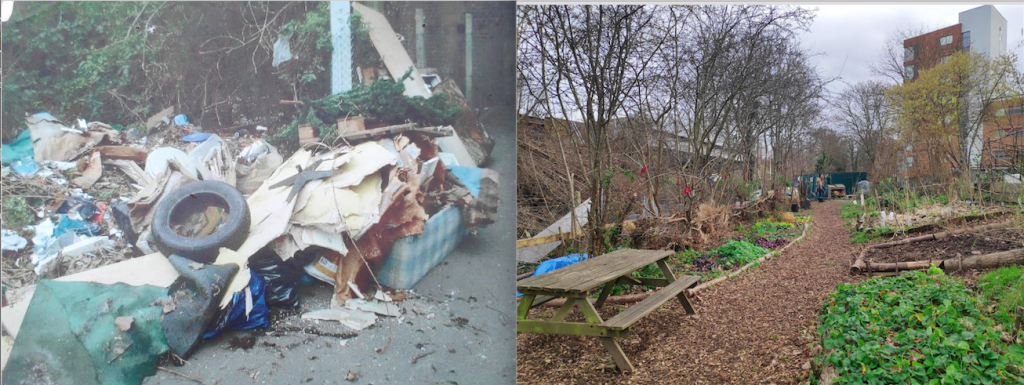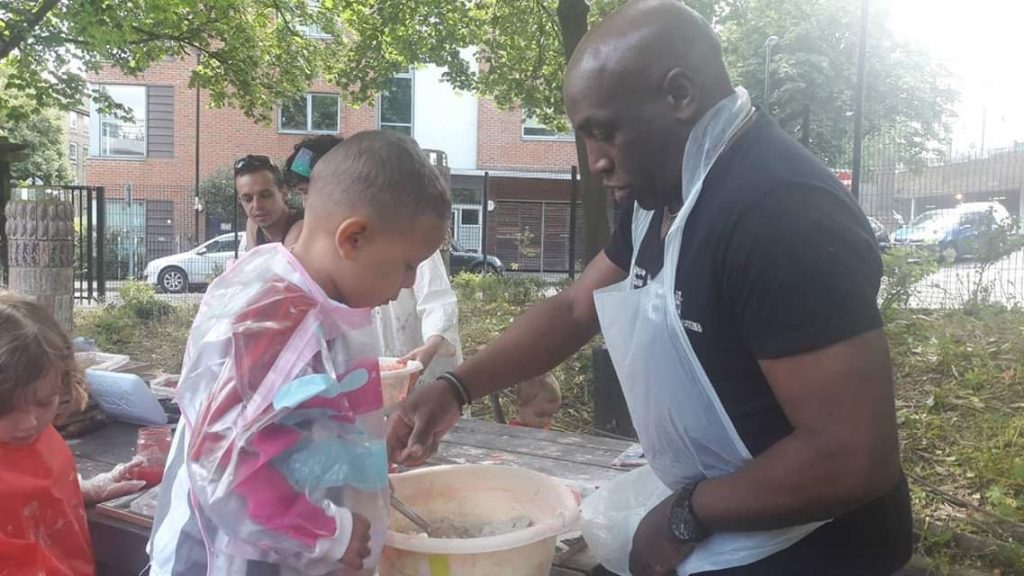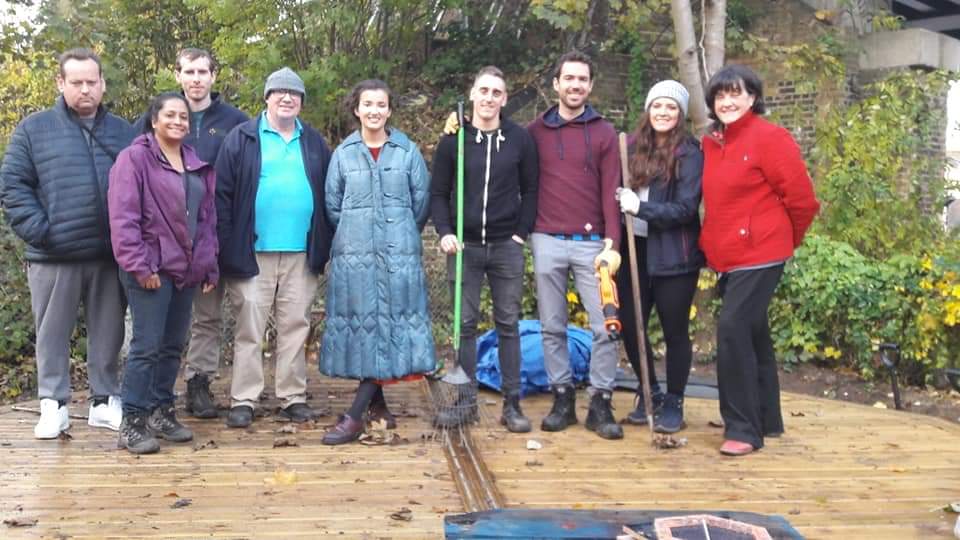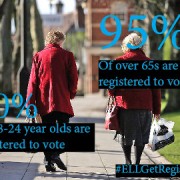 On one side of Brockill Crescent bridge in Brockley there are million-pound mansions; on the other side sits an estate once known for knife crime and food poverty, one of the most deprived areas of London. Straddling the divide, though, is Frendsbury Gardens: a peaceful stretch of land where a handmade shelter stands and fresh fruit and vegetables grow, next to a pond where frogs sleep under its water.
On one side of Brockill Crescent bridge in Brockley there are million-pound mansions; on the other side sits an estate once known for knife crime and food poverty, one of the most deprived areas of London. Straddling the divide, though, is Frendsbury Gardens: a peaceful stretch of land where a handmade shelter stands and fresh fruit and vegetables grow, next to a pond where frogs sleep under its water.
The garden used to be a wasteland where people would throw their rubbish; knives and needles were often found discarded there. “You couldn’t see from the front of the road through to the back of the estate. There were a lot of people here who were frightened to walk through it to get home,” said Nadine Hibbert, Chair of Frendsbury Gardens.

Before/After: the garden in 2008 vs today Pic: Frensbury Gardens (left), Bertille Duthoit (right)
In the past there had been issues with rival gangs in Catford (SE6) and Brockley (SE4) as groups have engaged in a “postcode war”, said Nadine. “This was not an estate-wide problem, but small-scale drug dealers used to hide their weapons underneath mattresses left here, so they could get them whenever they needed to.”
According to Nadine, violence has diminished since one tragic event three years ago. Shaq Fearon, 17, was stabbed to death by some of the SE6 gang on his way to a youth club. “It’s been three years now since we’ve had a knife crime death. Hopefully Shaq was the last one,” said Nadine. She believes community projects like Frendsbury Gardens are part of the reason that violence has lessened. “This is about being pro-active.”
Eleven years ago, Lewisham Council sold the land where Frendsbury Gardens now sits to the volunteers responsible for its creation for a single, symbolic pound. The aim of the sale was to end criminal acts around the estate and to bring its different communities together. Throughout the years, many volunteers worked to make the garden a welcoming and safe space. Furthermore, building companies such as MACE (the company responsible for building the Shard) will help volunteers to build new classrooms on the site. Local architects and artists, such as Tom Kyle and Patricia de Isidoro, also lent their hands to the project and are still working on garden upkeep. In late Spring, a new classroom is also set to be built here. “It’s the community helping the community,” said Nadine.
The garden itself has now become a safe place for children, said Nadine. “If you get the kids busy and engaged, hopefully you’ll get less social issues because I think hunger, loneliness or problems with mental health can sometimes lead to the wrong path.” For this reason, Frendsbury ‘s volunteers and several community groups have organised Christmas activities. The garden also provided food for the Winterfest, for which 250 local children enjoyed fun activities such as ice-skating during their Christmas break. A food bank will also be starting in 2019.
Ema Felix, 42, is a volunteer for the gardens and created the Secret Adventurers’ Club, a pre-school group with the mission to bring children outdoors. Through food, children discover not only nature but also different cultures and people.
“You might have a kid from Syria talking to a Polish kid, talking to someone else and then realising that we’re all the same because we all eat this thing, but we didn’t necessarily know they were eating is as well,” she said.
Both Ema and Nadine said that, almost unexpectedly, this work found that “different people were able to relate to each other through food.”

Cooking class with The Adventurer’s Club. Pic: Nadine Hibbert
The project also sees residents from the previously segregated ward come together and work as one. Children from Turnham Academy and John Stainer Community Primary School come to the garden and interact with one another – something that didn’t happen before. “If you live on the wrong side of the bridge,” said Nadine, “a lot of kids would never have spoken to the kids from the other side, but when you come here, it doesn’t make any difference what school you go to.”
Lewisham Councillors Paul Bell, Joan Millbank and Luke Sorba, said that by working with the Honor Oak Estate Stakeholders Group, “we have been able to improve the estate environment and to coordinate community activities, so that residents of all ages will feel safer, more confident to leave their homes and be able to take a full part in neighbourhood life”.
As well as becoming a safer space for children to interact, the garden hosts plenty of opportunities for all members of the community. Every Wednesday, adults with mental health, come together to carry out ad-hoc gardening duties. Ema said: “You can see from speaking to them that some of these people don’t have a lot of social interaction. Coming to the garden is a really crucial part of their week – and they’re so proud of what they do. It’s really lovely.”

Wellbeing group with Mace staff volunteering and Cllr Joan Millbank (in red). Pic: Nadine Hibbert
The garden also helps improve the neighbourhood by allowing the space to be used on a community service basis. It welcomes members of the community who recently received a community pay back order – which aims to break the cycle of re-offending – for six to 10 weeks. “Ex-offenders have created something positive for the children here,” said Ema.
Nadine seemed hopeful for the future of the garden. She said: “There are now fewer issues with guns, knives – the sorts of problems we were having before. Now, our biggest issue is a local homeless guy who comes and showers in the garden – but he’s our quirky guy, so we look after him. He’s not causing us any issues, so we’re happy to help him. He’s ours.”




